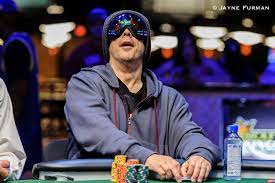According to David Sklansky, most new poker players lose during their first tournament. Perhaps this is because they have learned to play poker, are very comfortable with the software, and have no clue as to what to do. Playing in a tournament for the first time, whether it’s online or offline, brings up a number of lessons. These lessons are important, because if you are prepared, you will only benefit from them. You will be able to pay attention to details that you were not able to before.
The first lesson is to be aware of the poker routine you are entering. You are not playing your strongest, you are playing your worst. The pros call this playing your opponent. What you are doing is trying to find holes in your opponents play and get into their head. Horse poker players are experts at this, so put down any money you have at the start of the tournament and call it an ante. A player limping into the pot with 4 high cards is going to call up a bet of 3 times the big blind up to the river. Horse players know that their hand is probably the worst. They will call up big in that scenario, but know that in the majority of these cases their hand will be beaten.
Many online poker players are still having problems with impulse control. They want to take their hand so that they can raise, and often times they raise out of turn. A player that is famed for his/her propensity to raise on turn will surely raise you off your hand.
The impulse control issue will prove decisive in Togel. If a player is not well coordinated, several factors can bind on him. The majority of the time, an amateur player will feel that he/she is in a better position then a more experienced poker player. That usually is not so. In the majority of these cases, an amateur player will call the raise, whereas a more experienced player would likely re-raise.
Try to stay out of the early losses as much as possible. Don’t go on tilt, and don’t chase after your losses. Part of playing poker is to accept that you are only human and that (like any other athlete or human being) your capabilities can only take you so far. Poker is a game of numbers and that’s it. You’re not going to last 100 poker sessions.
The second lesson is to relax into your game. Almost as important as focusing on your own play is relaxing into your tournament. TWICE through the tournament, you should NOT be trading hands with other players. The reason for this is fairly simple. You are not playing in a tournament to win; you’re playing in a tournament to cash. The vast majority of players who play in multi table tournaments are there for ONLY one reason: to cash.
Stick to your original plan, and you’ll be much more successful in reaching the final table. Don’t have other people forcing you to make moves; make your own decisions, and you’ll end up in the money more often.
